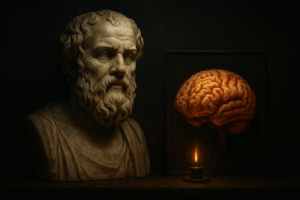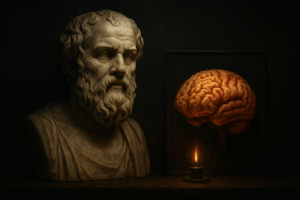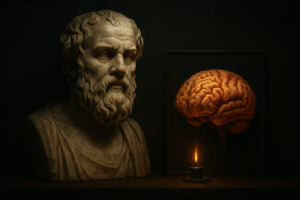
Introduction: The Role of Detachment in Modern Life
Detachment, a concept deeply rooted in spiritual, philosophical, and psychological traditions, offers an insightful way to examine our relationships, possessions, and beliefs. From the Stoics of ancient Greece to the teachings of Buddhism, detachment has been a pivotal element in various traditions. In today’s fast-paced, materialistic society, the relevance of detachment is redefined – it is about finding inner peace amidst external distractions, not indifference or disengagement.
“In the midst of movement and chaos, keep stillness inside of you.” – Deepak Chopra
The Contemporary Significance of Detachment: Addressing Modern Challenges
Detachment in modern settings acts as a counter to the anxiety and dissatisfaction prevalent in today’s society. The relentless pursuit of material wealth and the pressures of social media create a need for detachment as a pathway to rediscover true values like meaningful relationships, inner peace, and a sense of purpose beyond materialism.
“The ability to observe without evaluating is the highest form of intelligence.” – Jiddu Krishnamurti

Exploring Detachment from Three Angles: Biblical Wisdom, Love, and Jungian Psychology
This article aims to explore detachment through three distinct lenses: the wisdom of Biblical teachings, the approach to love without excessive attachment in personal relationships, and Carl Jung’s psychological theories. These perspectives offer a comprehensive view of how detachment can contribute to a healthier, more balanced, and spiritually fulfilling existence.
“The spiritual life does not remove us from the world but leads us deeper into it.” – Henri J.M. Nouwen
Detachment in the Bible: Spiritual Priorities Over Material Pursuits
The Bible portrays detachment as a virtue, emphasizing spiritual over material values. Scriptural teachings like Luke 14:33 and Matthew 6:19-21 advocate focusing on spiritual rewards rather than earthly riches. Detachment from relationships, especially when they conflict with spiritual principles, is also highlighted, as seen in Matthew 10:37.
“Do not store up for yourselves treasures on earth, where moths and vermin destroy, and where thieves break in and steal.” – Matthew 6:19 (NIV)

Biblical Narratives and Scholarly Perspectives on Detachment
Biblical stories such as Abraham’s sacrifice of Isaac and the tale of the Rich Young Ruler exemplify the concept of detachment. These narratives, along with scholarly interpretations, suggest that detachment is crucial for deepening one’s divine relationship and cultivating virtues like humility and faithfulness.
“He is no fool who gives what he cannot keep to gain that which he cannot lose.” – Jim Elliot
Applying Biblical Detachment in Today’s World
In the modern context, Biblical principles of detachment can be practiced by valuing relationships and possessions without letting them dominate us, aligning our lives with spiritual values like compassion and integrity.
“For where your treasure is, there your heart will be also.” – Matthew 6:21 (NIV)
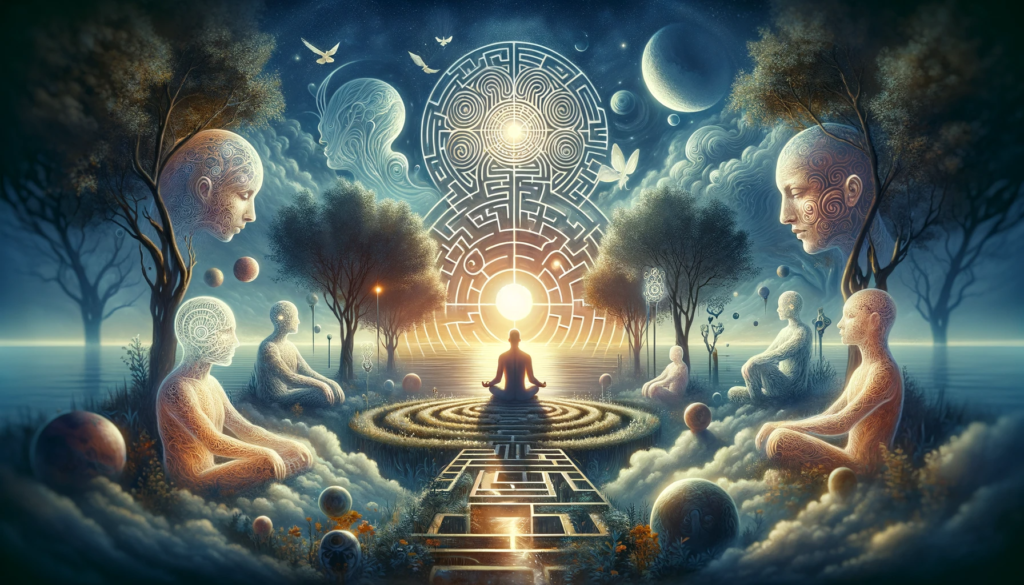
Love Without Attachment: Fostering Healthy Relationships
The concept of loving without being overly attached is crucial for maintaining healthy, balanced relationships. This involves distinguishing between love and attachment, where love is selfless and freeing, and attachment often stems from fear and can lead to possessiveness.
“Let there be spaces in your togetherness.” – Kahlil Gibran
Practical Steps and Challenges in Cultivating Unattached Love
To foster unattached love, steps like self-awareness, open communication, respecting independence, and cultivating self-love are essential. This concept applies to all forms of relationships and requires overcoming societal conditioning and personal insecurities.
“The most terrifying thing is to accept oneself completely.” – Carl Jung
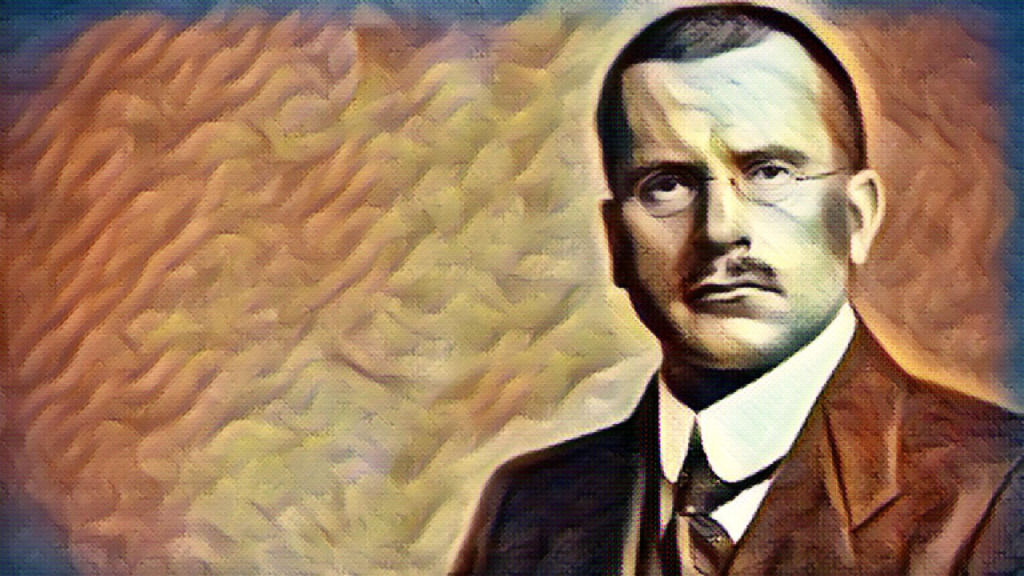
Carl Jung’s Perspectives on Detachment: The Role of Individuation in Personal Development
Carl Jung’s analytical psychology offers profound insights into the nature of detachment, particularly through his concept of individuation. Individuation is a process of personal development where an individual becomes aware of and reconciles the different elements within their psyche. This includes the conscious self but also the unconscious aspects of personality. Jung saw individuation as essential for achieving a balanced and holistic sense of self.
“Your visions will become clear only when you can look into your own heart. Who looks outside, dreams; who looks inside, awakes.” – Carl Jung

Key Elements of Jung’s Concept of Individuation:
- Integration of the Psyche: It involves acknowledging both conscious and unconscious aspects, including the ‘persona’ (the social face one presents to the world) and the ‘shadow’ (the unacknowledged and often rejected parts of one’s personality).
- The Role of Dreams and Symbols: Jung believed that dreams and symbols were crucial in revealing the unconscious aspects of the psyche, aiding in the individuation process.
- Self-realization: Individuation leads to self-realization, where an individual recognizes and accepts their true self, beyond social masks and unconscious influences.
The Process of Detachment in Jungian Psychology
In Jungian psychology, detachment is not about becoming isolated or indifferent but about gaining freedom from unconscious influences that can control behavior and emotions. This detachment is crucial for mental health and authentic living.
Detachment and the Shadow:
- Confronting the Shadow: This involves acknowledging and integrating the shadow aspects, leading to a detachment from previously unconscious biases and misconceptions.
- Recognizing Projection: Detachment includes recognizing how one projects these unconscious aspects onto others, which can distort relationships.
“One does not become enlightened by imagining figures of light, but by making the darkness conscious.” – Carl Jung

Jungian Detachment in Relationships and Therapy
Jung’s approach to detachment in relationships focuses on achieving a balance between attachment and detachment. This balance is essential for healthy, authentic relationships.
Key Aspects of Jungian Detachment in Relationships:
- Recognizing Projections: Understanding that our perceptions of others are often colored by our projections is key. Detaching from these projections allows for more genuine connections.
- Balancing Attachment and Detachment: Healthy relationships involve a mix of closeness and independence, where both individuals respect each other’s individuality and growth.

Application in Jungian Therapy:
- Goal of Therapy: In therapy, the goal is to help clients detach from unhealthy patterns, narratives, and projections that dictate their relationships and self-perception.
- Techniques Used: This may involve dream analysis, exploring personal symbols, and confronting the shadow, all aimed at fostering individuation and healthy detachment.
By understanding and applying Jung’s perspectives on detachment, individuals can achieve a more authentic relationship with themselves and others, leading to greater self-awareness and healthier relationships. This exploration is not only crucial for personal growth but also plays a vital role in how we interact and connect with those around us.
“The meeting of two personalities is like the contact of two chemical substances: if there is any reaction, both are transformed.” – Carl Jung
Integrating Detachment Perspectives: Harmonizing Diverse Views
This article integrates the perspectives of Biblical teachings, unattached love, and Jungian psychology, offering a multifaceted understanding of detachment. Despite their different origins, these views converge on prioritizing spiritual or emotional well-being over materialistic attachments, providing guidance for a balanced life.
“Wisdom tends to grow in proportion to one’s awareness of one’s ignorance.” – Anthony de Mello

Detachment in Practice: A Holistic Approach
Practically, detachment involves appreciating others while allowing them space in relationships, introspection and confronting the self in personal growth, and focusing on spiritual values over material pursuits.
“The art of life lies in a constant readjustment to our surroundings.” – Kakuzo Okakura

Conclusion: Detachment as a Path to a Balanced and Enriched Life
Detachment, understood and applied appropriately, leads to a richer, more meaningful life. It is about striking the right balance between engagement with the world and maintaining an inner sense of peace and purpose. The principles of detachment serve as a guiding force in contemporary life, encouraging ongoing exploration and application in personal journeys towards holistic and harmonious living.
“Balance is not something you find, it’s something you create.” – Jana Kingsford



